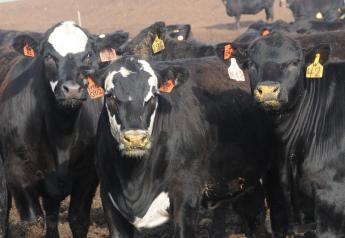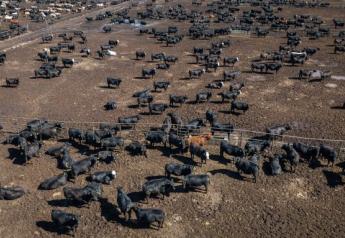NAFTA Benefits Beef Trade Across U.S.-Canada Border

Renegotiating trade agreements is a campaign promise President Donald Trump has kept and the North American Free Trade Agreement (NAFTA) appears to be heading towards a reconfigured deal. For beef producers and consumers in the U.S., Mexico and Canada it might not be a good thing to change the agreement if it harms what has been a good relationship the past 23 years.
Leaders from the National Cattleman's Beef Association (NCBA) and the Canadian Cattleman's Association (CCA) shared their thoughts with AgriTalk on the importance of NAFTA to their countries’ cattle producers.
NAFTA is one of the best trade agreements the U.S. participates in says Kent Baucus, director of international trade for NCBA.
The U.S. has unlimited, duty free access into Canada and Mexico. NAFTA helped forge and maintain relationships to make Mexico the second largest importer of U.S. beef and Canada the fourth largest destination for U.S. beef in terms of volume.
Last year Canada bought $758 million worth of U.S. beef, just behind the $975 million Mexico purchased, according to U.S. Meat Export Federation. Japan and South Korea are the only other countries that currently out buy Mexico and Canada for U.S. beef.
“We are kind of concerned our governments will mess with a good thing and jeopardize the access we already had,” Baucus says.
Transportation across the border is one of the few areas Baucus thinks there could be improvement for all three countries.
Canadian Cattleman's Association would like to see some modernization in NAFTA, but not at the expense of losing beef access says Dennis Laycraft, executive vice president for CCA. “The main parts of NAFTA have been working well.”
Laycraft adds global trade helps generate $400-500 more for cattle in Canada.
“Overall there is a very strong recognition that there is a huge mutual benefit in the Canada-U.S. trade relationship,” Laycraft says.
According to the U.S. Department of Agriculture, the U.S. imported 718 million lb. of beef from Canada and another 493 million lb. from Mexico in 2016. A combined 702 million lb. was bought by Mexico and Canada last year.
Listen to the entire interview on AgriTalk with Jim Wiesemeyer from Informa Economics and Brian Grete from Pro Farmer joining the conversation 11 minutes into the discussion:







